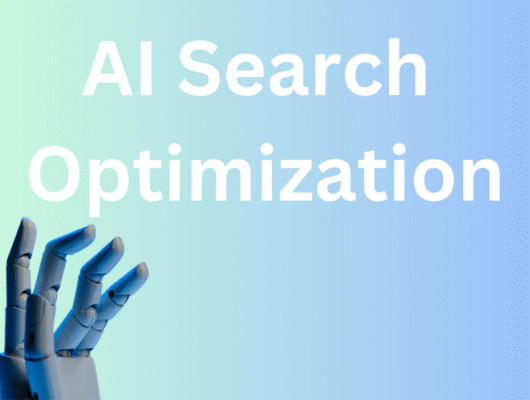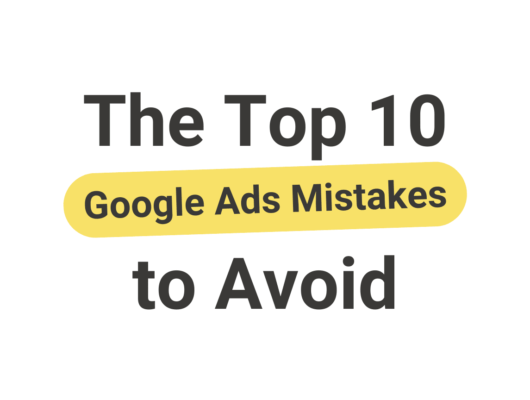Introduction
AI in Digital Marketing In today’s fast-paced digital world, staying ahead of the curve is no longer optional—it’s essential. As consumers demand more personalized, faster, and smarter experiences, businesses are turning to Artificial Intelligence (AI) to meet and exceed those expectations. From the product recommendations you see on Amazon to the way Netflix knows what you want to watch next, AI is working behind the scenes to make marketing more intelligent and intuitive.

But what exactly is AI doing for digital marketers? The answer: a lot. AI is transforming how brands connect with their audiences, making campaigns more data-driven, personalized, and effective. It’s not just about automation—it’s about enhancing creativity, predicting behavior, and making better decisions in real-time.
In this article, we’ll explore how AI is revolutionizing digital marketing, the tools driving this change, real-world examples, and what the future holds. Whether you’re a business owner, marketer, or simply curious about technology, understanding the power of AI in digital marketing is no longer optional—it’s critical.
What is AI in Digital Marketing?
Artificial Intelligence (AI) in digital marketing alludes to the utilize of smart calculations and machine learning methods to analyze information, anticipate client behavior, and robotize marketing forms. Instep of depending exclusively on human instinct and manual assignments, AI helps marketers make data-driven choices, make personalized content, and provide better client experiences.

At its core, AI mimics human intelligence—it can learn from information, identify patterns, and unravel issues with negligible human intercession. In digital marketing, this implies AI can:
- Understand client behavior
- Predict future buying patterns
- Automate tedious assignments like e-mail reactions or social media posting
- Personalize client encounters in genuine time
Key Innovations Behind AI in Marketing:
- Machine Learning (ML): Helps systems learn from past information to progress forecasts and decisions.
- Natural Language Processing (NLP): Empowers AI to understand and create human language, valuable for chatbots and content creation.
- Predictive Analytics: Analyzes verifiable information to estimate future results such as client behavior or campaign success.
- Computer Vision: Allows AI to translate visual content, regularly utilized in picture acknowledgment and social media analysis.
With AI, digital marketing gets to be more productive and exact. It engages brands to interface with the right audience, at the right time, with the right message—often naturally.
Key Benefits of AI in Digital Marketing
AI is revolutionizing the way marketers arrange, execute, and optimize their campaigns. It brings a range of benefits that not as it were improve efficiency but too essentially progress client engagement and return on investment (ROI). Here are the key focal points of utilizing AI in digital marketing:

1. Hyper-Personalization
AI allows marketers to convey exceedingly personalized encounters based on a user’s behavior, interface, and preferences.
- Example: AI can analyze a user’s browsing history, past buys, and online behavior to propose items or content tailored particularly for them.
- Result: Progressed client fulfillment and higher transformation rates.
2. Smarter Customer Insights
AI forms endless amounts of information quicker and more precisely than any human could.
- It can reveal covered up designs and patterns in client information, making a difference businesses understand what their audience really wants.
- This leads to better-targeted campaigns and more successful marketing strategies.
3. Marketing Automation
AI mechanizes tedious marketing assignments like:
- Email scheduling
- Social media posting
- Campaign reporting
This liberates up marketers to focus on technique and imagination, whereas AI handles the operational side.
4. Real-Time Decision Making
AI can analyze information and react immediately, allowing businesses to:
- Adjust advertisement campaigns on the fly
- Personalize content in real time
- Deliver opportune reactions to client inquiries through chatbots
This nimbleness gives brands a competitive edge in a fast-moving digital landscape.
5. Enhanced Content Creation and Optimization
AI tools help marketers:
- Generate content ideas
- Write item descriptions, social posts, or advertisement copy
- Optimize blog posts for SEO
Tools like ChatGPT and Jasper are already broadly utilized to streamline content creation without relinquishing quality.
6. Predictive Analytics
AI doesn’t fair see at what has happened—it predicts what will happen next.
- It can figure client behavior, campaign execution, and sales trends.
- Marketers can make more certain choices about where to distribute their budget and how to refine their strategies.
7. Improved Customer Service
AI-powered chatbots are available 24/7 to reply client questions, resolve issues, and direct clients through their buying journey.
- This enhances the generally client involvement whereas reducing reaction times and human workload.
8. Cost Efficiency
Although AI tools may require an starting investment, they regularly decrease long-term costs by:
- Automating labor-intensive tasks
- Minimizing errors
- Increasing campaign viability and ROI
AI Tools Commonly Used in Digital Marketing
AI is no longer limited to big tech companies—businesses of all sizes are now using AI-powered tools to improve their digital marketing efforts. These tools help automate tasks, enhance customer engagement, and optimize campaigns for better results. Below are some of the most popular and effective AI tools used in the industry today:

1. ChatGPT (by OpenAI)
- Use: Content creation, customer support, and idea generation.
- How it helps: Marketers use ChatGPT to write blog posts, ad copy, social media content, and even answer customer inquiries through chatbots.
2. Jasper (formerly Jarvis)
- Use: AI-powered copywriting tool.
- How it helps: Jasper creates marketing copy, product descriptions, and even long-form content quickly, saving time while maintaining quality.
3. HubSpot
- Use: Marketing automation and CRM.
- How it helps: HubSpot uses AI to score leads, personalize emails, and automate marketing campaigns, making it easier to nurture customers at every stage of the funnel.
4. Grammarly
- Use: AI writing assistant.
- How it helps: Ensures your content is grammatically correct, clear, and aligned with your desired tone—crucial for marketing emails, blog posts, and social media.
5. Surfer SEO / Clearscope
- Use: SEO optimization for content.
- How it helps: These tools analyze top-performing content and suggest keywords, headings, and structure to help your content rank higher in search engines.
6. Hootsuite Insights (Powered by Brandwatch)
- Use: Social media listening and sentiment analysis.
- How it helps: Understand what your audience is saying about your brand in real-time and gain insights for better engagement.
7. Adzooma / WordStream
- Use: AI-powered ad management.
- How it helps: These tools analyze ad campaigns across Google, Facebook, and Bing, suggesting optimizations to improve performance and reduce costs.
8. Tidio
- Use: AI chatbots and live chat support.
- How it helps: Provides instant customer support and helps capture leads through AI-driven responses on websites.
9. Canva (with AI features)
- Use: Design and content creation.
- How it helps: Canva’s AI tools help with automatic design suggestions, resizing, and content generation—making visual marketing faster and easier.
10. SEMrush / Ahrefs (with AI features)
- Use: SEO, keyword research, and competitor analysis.
- How it helps: These platforms use AI to identify opportunities, analyze competitors, and optimize your content and PPC campaigns.
Real-World Applications of AI in Digital Marketing
AI isn’t just a futuristic concept—it’s already transforming the way brands interact with customers and run their marketing campaigns. From chatbots to predictive analytics, here are some powerful real-world applications of AI in digital marketing that are delivering measurable results:

1. Personalized Product Recommendations
AI analyzes user behavior—such as past purchases, browsing habits, and search history—to recommend products tailored to individual preferences.
- Example: Amazon uses AI-powered algorithms to suggest products based on what users are likely to buy next, significantly boosting conversions and sales.
2. Dynamic Pricing
AI helps businesses adjust pricing in real-time based on demand, competition, and customer behavior.
- Example: E-commerce platforms like eBay and airlines use AI to dynamically change prices to maximize revenue and stay competitive.
3. Chatbots for Customer Support
AI chatbots are available 24/7 to answer common customer questions, assist with purchases, and resolve issues instantly.
- Example: Sephora’s chatbot provides beauty advice and product recommendations, improving customer satisfaction and engagement.
4. Predictive Customer Behavior
AI can analyze past customer interactions to predict future actions, such as which users are most likely to convert or churn.
- Example: Spotify uses predictive analytics to curate personalized playlists (like “Discover Weekly”), enhancing user retention.
5. AI-Powered Content Creation
AI tools help generate high-quality content quickly and at scale, from email subject lines to blog posts and product descriptions.
- Example: Companies use tools like ChatGPT or Jasper to create engaging content, freeing up marketers to focus on strategy and creativity.
6. Programmatic Advertising
AI automates the buying of digital ads, targeting the right audience at the right time with the right message.
- Example: Google Ads and Facebook Ads use machine learning to optimize bidding, placement, and targeting for higher ROI.
7. Sentiment Analysis
AI can analyze online reviews, social media posts, and customer feedback to determine how people feel about a brand or product.
- Example: Tools like Brandwatch and Hootsuite Insights help companies monitor brand reputation and respond proactively to customer sentiment.
8. Visual Search
AI allows users to search for products using images rather than text.
- Example: Pinterest and Google Lens use AI-powered visual recognition to help users find similar products online based on photos they upload.
Challenges and Ethical Considerations
While AI offers incredible advantages in digital marketing, it’s not without its challenges and ethical concerns. As brands increasingly rely on intelligent technologies, they must also be mindful of the risks and responsibilities that come with it. Here are some of the key issues to consider:
1. Data Privacy and Security
AI relies heavily on collecting and analyzing user data to function effectively. However, this raises serious privacy concerns:
- Misuse or over-collection of personal data can lead to breaches of privacy laws such as GDPR and CCPA.
- Customers may feel uncomfortable if they think they’re being tracked or manipulated.
Marketers must ensure that data is collected transparently, stored securely, and used ethically.
2. Algorithmic Bias
AI systems can unintentionally reinforce biases present in the data they’re trained on.
- This could lead to discriminatory ad targeting or unfair content moderation.
- For example, AI might favor certain demographics over others without human oversight.
Solution: Regular auditing and bias testing are essential to keep AI fair and inclusive.
3. Lack of Human Touch
While AI excels at efficiency, it can lack the emotional intelligence and creativity that human marketers bring to the table.
- Over-reliance on AI (e.g., chatbots or automated emails) may make customer interactions feel robotic and impersonal.
Balance is key: AI should enhance human efforts, not replace them entirely.
4. High Initial Costs and Technical Complexity
Implementing AI tools can be expensive and technically challenging, especially for small businesses.
- It often requires skilled personnel, quality data, and continuous monitoring to function properly.
Tip: Start small with accessible tools and scale as your business grows.
5. Transparency and Accountability
AI decisions—such as why a certain customer sees a particular ad—are often made behind a “black box,” making it difficult to explain how outcomes are determined.
- This lack of transparency can erode trust if users feel they’re being unfairly targeted.
Marketers should aim for explainable AI and clearly communicate how customer data is being used.
The Future of AI in Digital Marketing
As technology continues to advance, AI is set to gotten to be indeed more necessarily to digital marketing. What we see nowadays is fair the starting. In the close future, AI won’t fair bolster marketing—it will lead it. Here’s what the future may hold:
1. Even More Personalization
AI will provide ultra-personalized encounters over each touchpoint. From energetic website content to voice colleagues that “know” the client, future marketing will be custom-made in real-time to each individual’s behavior, inclinations, and needs.
- Example: AI may before long make entire personalized websites or product pages for each guest based on their browsing habits.
2. Predictive Marketing at Scale
Marketers will progressively depend on prescient analytics to expect client needs some time recently they indeed arise.
- Future AI systems will figure everything—from what items individuals are likely to purchase, to the best time and channel to reach them.
This will help businesses stay ahead of client desires and boost conversions.
3. Voice and Visual Search Growth
With the rise of smart assistants (like Alexa and Google Assistant) and visual search tools (like Google Lens), AI will reshape SEO and content strategies.
- Optimizing for voice and visual search will gotten to be basic as clients move from writing to talking and snapping pictures.
4. AI-Generated Content That Feels Human
As normal language processing (NLP) progresses, AI-generated content will ended up more inventive, engaging, and unclear from human writing.
- We can anticipate AI to type in video scripts, create social media campaigns, and indeed make passionate narrating content.
5. Real-Time Marketing Automation
AI will control completely computerized, real-time marketing systems that:
- Adjust budgets instantly
- Change advertisement creatives on the fly
- Send impeccably coordinated messages across channels
This will definitely decrease human mediation whereas progressing speed and precision.
6. Ethical AI Will Become a Priority
With increasing concerns around information morals and straightforwardness, future AI systems will require to be more responsible and explainable.
- Brands that utilize AI morally and straightforwardly will pick up more prominent believe and dependability from their customers.
7. AI + Augmented Reality (AR) & Virtual Reality (VR)
AI will work hand-in-hand with AR and VR to make immersive, intuitively experiences.
- Think virtual try-ons, personalized virtual shopping colleagues, or AI-powered virtual showrooms—all driven by client data.
Conclusion
AI is no longer just a buzzword—it’s a transformative force reshaping the future of digital marketing. From personalized recommendations and predictive analytics to chatbots and smart content creation, AI is helping marketers work smarter, not harder. It enables brands to deliver highly targeted, timely, and relevant messages that truly resonate with customers.
However, as we embrace the power of AI, it’s equally important to address the challenges—particularly around data privacy, transparency, and ethical use. The most successful marketers in the coming years will be those who strike the right balance between automation and authenticity.
In short, AI is not here to replace human marketers—it’s here to empower them. By leveraging AI tools responsibly and strategically, businesses of all sizes can enhance customer experiences, improve efficiency, and stay ahead in an increasingly competitive digital landscape.
The future of digital marketing is AI-driven—and that future has already begun.






